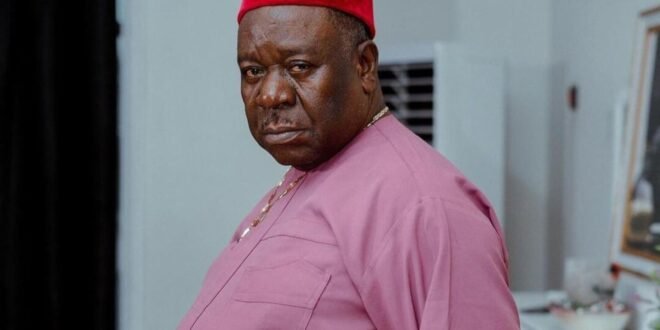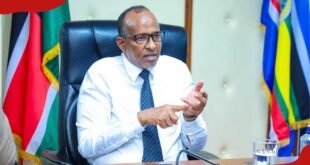The Tragic Pattern of Nollywood Veterans in Financial and Medical Crisis
Nollywood, Nigeria’s film industry, has produced countless stars who once dazzled audiences with their talent and charisma. However, a disturbing trend has emerged: many of these actors, now in their later years, are found frail and bedridden, with online appeals for financial help. These appeals often highlight the urgent need for substantial sums to cover medical expenses, and sometimes, they end in tragedy, with messages like “We lost another icon.”
Several notable actors have experienced this plight. Among them are Saint Obi, Enebeli Elebuwa, Obinna Nwafor (Saint Obi), Leo Mezie, Ashley Nwosu, Mr Ibu, Ngozi Nwosu, and Prince James Uche. Each of them publicly sought funds during their health crises, only to eventually pass away after battling various ailments. This recurring pattern raises a pressing question: Why do so many Nollywood veterans face financial and medical ruin in their later years?
Underpayment During Their Prime Years
One of the primary reasons lies in the underpayment that many actors received during their prime. In the 1990s and early 2000s, actors played a significant role in shaping the industry into a powerhouse. However, even A-list performers were earning as little as ₦20,000 to ₦100,000 per role, depending on their status. While a few might command up to ₦500,000, such amounts were irregular and unsustainable.
Actors like Enebeli Elebuwa and Justus Esiri, who starred in numerous films and TV series, had no royalties, pensions, or structured contracts. They were essentially working on a gig basis, which left them vulnerable to exploitation. Residuals, a common practice in Hollywood and other advanced film industries, did not exist in Nollywood. Once a film was completed, the payment ended, regardless of how many times the movie was resold, televised, or pirated.
Veteran actress Patience Ozokwor once mentioned in an interview that she accepted some roles just for visibility, as the pay was minimal. Many of her peers were unable to recover financially before age and illness caught up with them.
Lack of Health Insurance and Safety Net
Another critical factor is the absence of a formal health insurance scheme, pension structure, or a strong actors’ union in Nollywood. Until recently, there was no system in place to ensure long-term welfare for actors. When stars like Leo Mezie or Prince James Uche fell ill, the Nigerian public became their primary source of support.
Mr Ibu (John Okafor), whose diabetes-related health challenges dominated headlines for months, underwent multiple surgeries and relied heavily on public donations. Before his passing in 2024, he lamented that “Nollywood abandoned him,” although the Actor’s Guild of Nigeria (AGN) claimed they supported him within their limits.
Financial Mismanagement and Lack of Financial Literacy
Financial recklessness also plays a role in the struggles of many Nollywood veterans. Fame came quickly, but without the necessary tools to manage income wisely or invest for the future. Some actors lived lavishly, spending on flashy cars, parties, or maintaining expensive public personas. The lack of financial planning, combined with the absence of long-term earnings, made it nearly impossible to weather the unpredictability of both the industry and life itself.
The irregularity of acting work meant that when scripts stopped coming, due to age, trends, or politics, so did the income. Unlike professions with fixed retirement benefits, acting offered no safety net unless one was exceptionally lucky or diversified income early.
Chronic Illnesses and High Cost of Healthcare
Many Nollywood veterans face chronic illnesses such as kidney disease, diabetes, hypertension, stroke, and cancer. These conditions are expensive to manage and often diagnosed late due to poverty or denial. Healthcare in Nigeria is largely out-of-pocket, and public hospitals are overstretched and under-equipped.
By the time actors go public, their conditions are often advanced. The pleas for financial assistance are no longer about check-ups or early intervention; they’re about emergency surgery, dialysis, organ transplants, or life-saving evacuations abroad.
For example, Leo Mezie battled kidney disease for years before passing away in 2022. Despite a kidney transplant and crowdfunding efforts, he couldn’t sustain the long-term care needed. Enebeli Elebuwa suffered a stroke in 2012 and was flown to India for treatment, but he never recovered. Ashley Nwosu, another celebrated face of early Nollywood, died in 2011 from complications arising from liver disease. Victor Olaotan, known for his role in Tinsel, suffered a major accident and spent years bedridden before passing in 2021. He also relied on public goodwill and GoFundMe campaigns.
Public Sympathy, but No Structural Change
Each time a veteran actor falls ill, Nigerians respond with compassion, and social media campaigns trend. Governors, first ladies, and philanthropic organizations sometimes intervene. But once the crisis passes or the actor passes away, the cycle resets. The question remains: What can be done to address these systemic issues and prevent further tragedies?
 Info Malang Raya Its All About World News
Info Malang Raya Its All About World News




